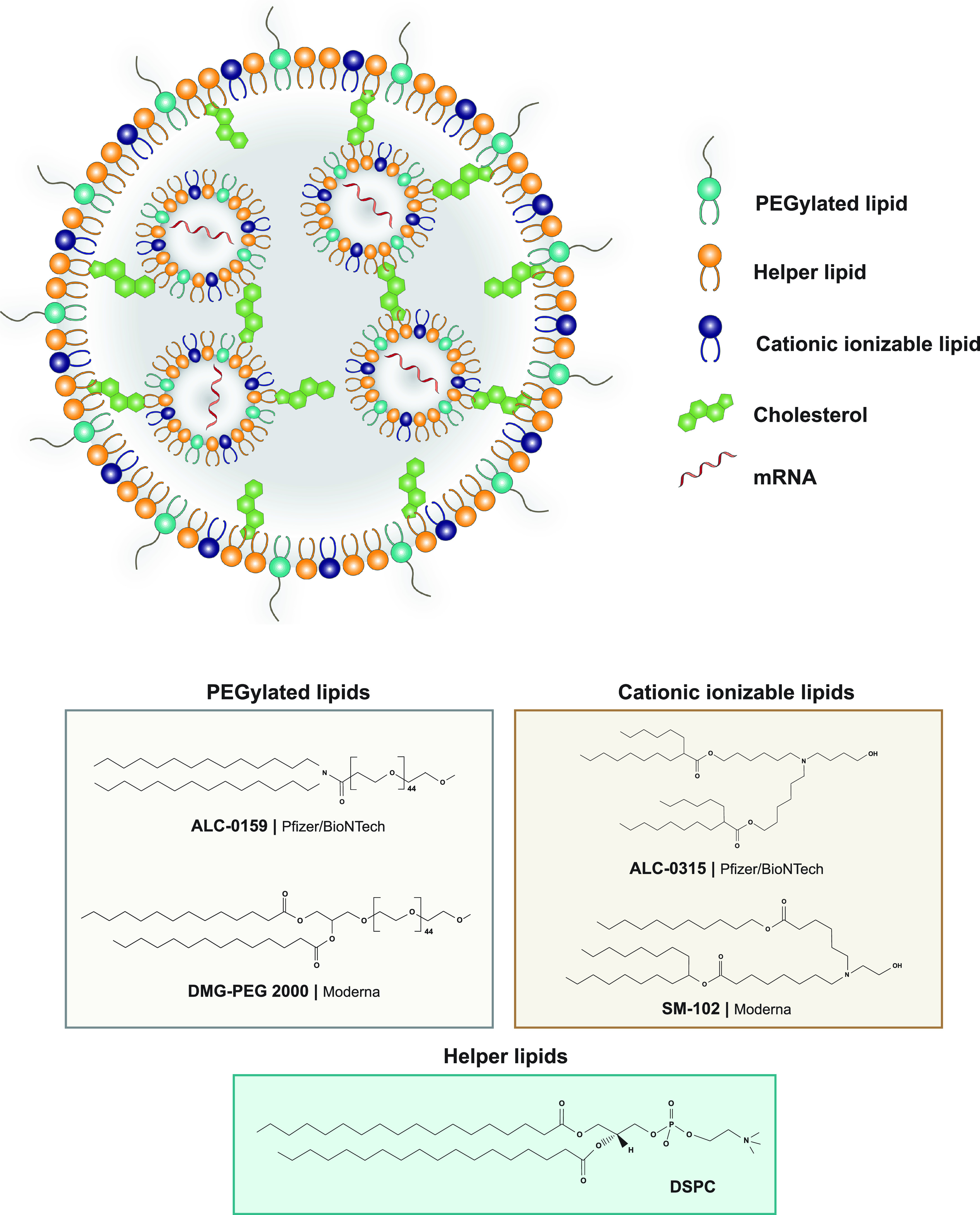FIG. 4.

Lipid NPs technology for the delivery of SARS-CoV-2-based mRNA. The delivery of mRNA requires a delivery system that protects the nucleic acids to be degraded by RNAses or the immune cells, because they are negatively charged and have large size. Both Pfizer/BioNTech (BNT162b2) and Moderna (mRNA1273) nanomedicine vaccines have similar compositions: (1) ionizable cationic lipids, that when in low pH are positively charged, thus allowing the complexation with nucleic acids, while at physiological pH have neutral charge, reducing possible side effects; (2) PEGylated lipids, that reduce opsonization and clearance; (3) helper lipids, that promote cell binding; (4) cholesterol, to mechanically stabilize the nanoparticle by occupying the gaps between the lipids. ALC-0159, 2-[(polyethylene glycol)-2000]-N,N-ditetradecylacetamide; DMG-PEG 2000, 1,2-dimyristoyl-rac-glycero-3-methoxypolyethylene glycol-2000; ALC-0315 ((4-hydroxybutyl)azanediyl) bis(hexane-6,1-diyl)bis(2-hexyldecanoate); SM-102, heptadecan-9-yl 8-((2-hydroxyethyl)(6-oxo-6-(undecyloxy)hexyl)amino)octanoate; DSPC, phospholipid distearoylphosphatidylcholine.
